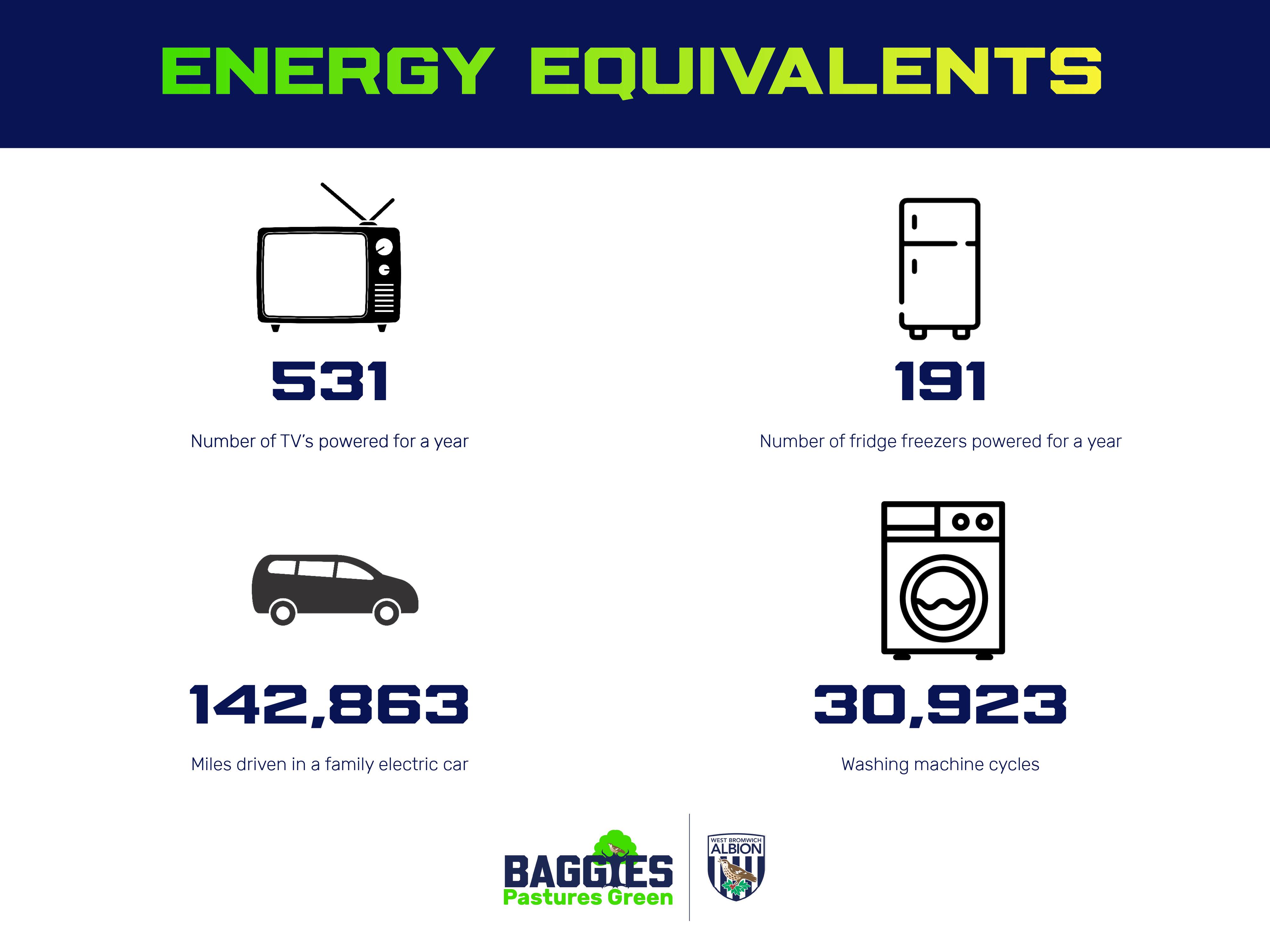Albion’s Sustainability Working Group - Baggies Pastures Green - are thrilled to announce the latest Waste Report shows their ‘Zero to Landfill’ target is being achieved.
The story so far
In December 2022, Albion made the decision to explore the marketplace with a view to enlisting the services of a Waste Disposal company that would meet our environmental sustainability aims and objectives.
We had recently signed up to the EFL’s league-wide scheme 'EFL Green Clubs', which supports clubs across the country to make environmental improvements - and responsible waste management and disposal would form a huge part of that.
It was important that we looked to work with a company that met our vision and values and could also operate and employ locally.
We met with B&M Waste representatives, and it was clear their ambitions were aligned with the club’s. In March 2023 the contract was agreed, and work began.
The information on how, when, what and where we produce our waste, both on matchdays and non-matchdays soon became clear. This enabled us start and build a strategy that would assist the club in its ambition to have less and less go to landfill.
We have worked with B&M Waste to ensure that we could separate out our general municipal waste stream from our paper/cardboard and our food waste.
This has been challenging but, because we have also improved our purchasing and procurement practices - combined with a strategy to always try and ‘go local’ - reducing the potential to produce waste in the first place was already being minimised.
It also helps that fantastic Catering and Events operations are excellent at keeping our organic waste down to an absolute minimum.
For the waste we do produce, we wanted to know what happens to it and be confident we are heading towards a ‘zero to landfill’ aspiration.
Between March 2023 and September 2023, we monitored our waste and where it went. The encouraging news is, over that six-month period, we reduced our waste as follows:
- General Municipal Waste – from a high of 2,722.50 kgs down to 1,633.50 kgs
- Separated out on average per month 2,722 kg of paper and cardboard.
- Separated out on average 2,882 kg of organic waste.
What happened to that waste each month?
The General Municipal Waste was taken to a ‘waste to energy’ facility and converted into Refuse Derived Fuel - or ‘RDF’ - from non-recyclable general waste.
The paper & cardboard was completely recycled.
The organic (food waste) was taken through an Anaerobic Digestion facility and turned into animal food pellets, the water from the process was treated and re-used, and any residual was incinerated - with the ash used in road surface material.
The great news is the club’s waste for that six-month period resulted in our ‘Zero to Landfill’ target being met.

No time to waste
While we are delighted with the initial results, our focus will be on striving to produce as little waste as possible in the first place. We are working with our supply chain to reduce packaging by elimination or replacement, as well as sourcing environmentally sustainable energy, products, and reusable materials.
There is still a long way to go. But we have made a start, and we will look to make more improvements and continue to try and make a difference.